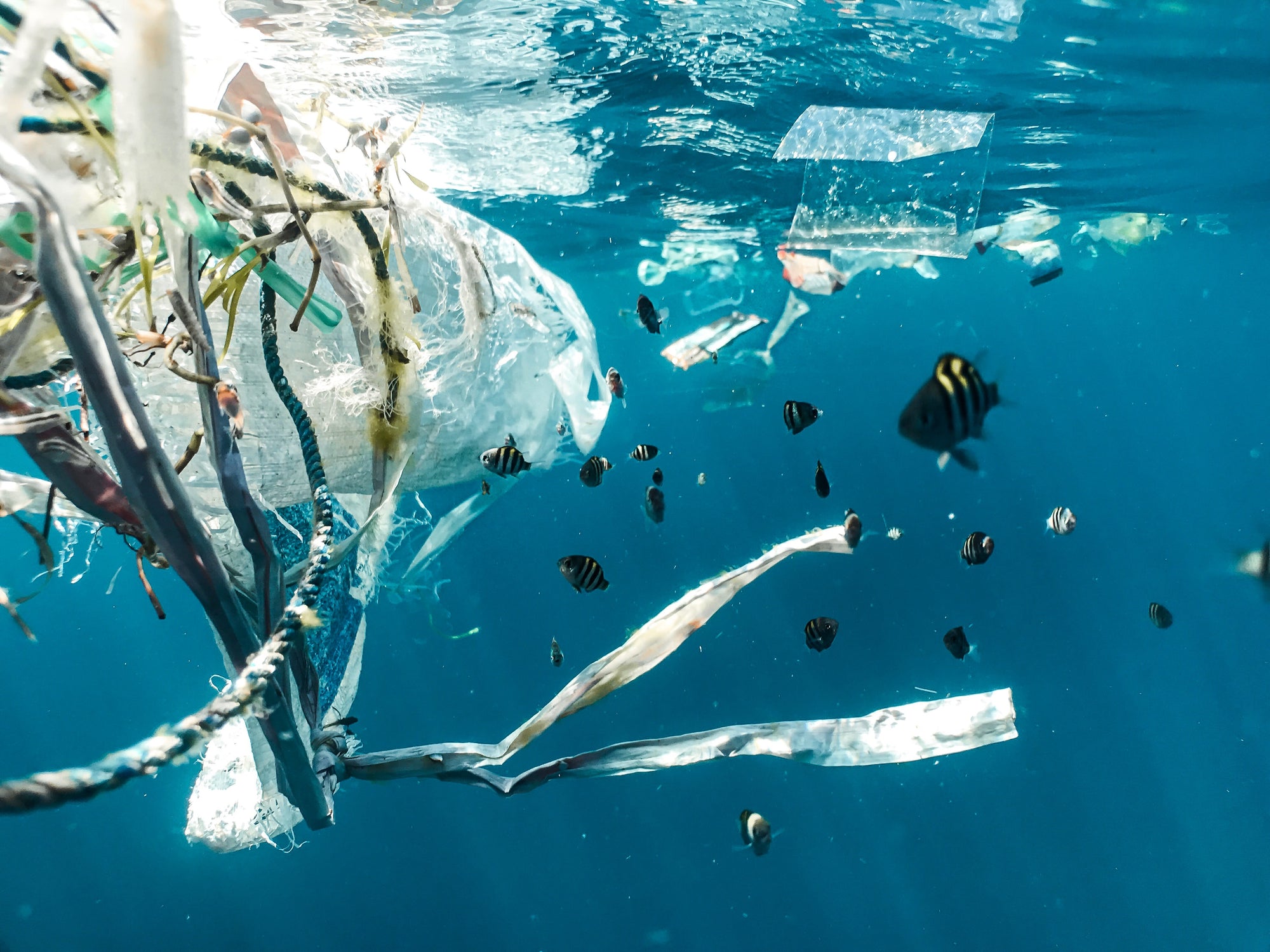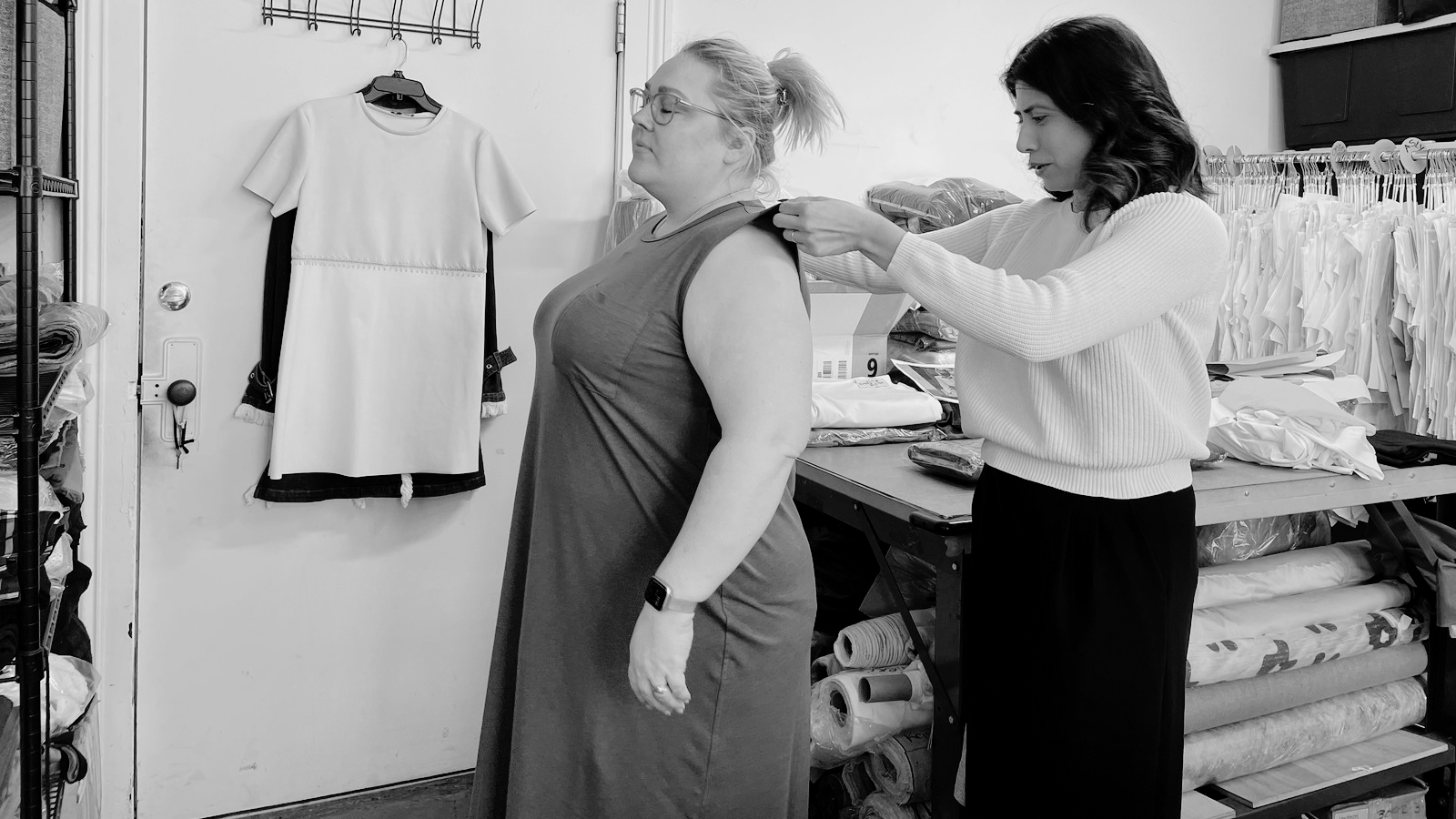
Long-sleeve shirt? Short-sleeve shirt? Both?! As the weather shifts from kinda warm to hot, many of us experience this collective state of seasonal confusion. But what if we stopped trying to find the perfect length or cut and, instead, focus on finding the ideal fabrics for our clothes?
Before there was polyester, rayon, and other synthetic textiles common in clothing today, the world relied on natural fibers. Materials like silk, wool, and cotton kept people warm, cool, and every temperature in between. But around the 1800s, the desire for cheaper materials drove scientists to explore artificial replications. Through this process, they were able to produce waterproof materials and fabrics with the ability to stretch in a way natural fibers could not. Yet for all the benefits these discoveries offered the fashion industry & beyond, some essential elements of natural fibers just could not be mimicked.
Have you ever tried on a vintage silk scarf? Or been shocked by the durability of a wool sweater passed down for generations? The integrity of natural fibers is undeniable. When properly cared for, natural fibers can offer comfortable, timeless style capable of lasting a lifetime. What’s more, their natural roots make them entirely biodegradable and recyclable.
With our overall impact in mind, the decision to choose natural fibers came, well, naturally. At Poplinen, we work primarily with Organic Cotton and hemp as well as natural synthetics, like Modal and Tencel ™. All of these fabrics are OEKO-TEX® certified and ethically sourced from South Korea, India, and the United States. On occasion, we’ll also source high-quality linen or other natural fabrics from Rag Finders of California. Collecting deadstock fabric, Rag Finders allows us to salvage fabric that would otherwise contribute to the nearly 11.3 million tons of textile waste, transforming it into garments with a whole lot of life in them.
MEET OUR FABRICS

Organic Cotton
An all-American favorite, you’ll find cotton in many of our products, including our Gloria Waffle Thermal and newly released Dolly Crop Yoga Tank. There are four varieties of cotton in the world: Pima, Egyptian, Upland, and Organic Cotton. While the other three categories focus primarily on the quality of the fabric, Organic Cotton is produced with both quality and process in mind. The cotton used in Poplinen’s garments meets the Global Organic Textile Standard (GOTS), a standard that regulates chemical usage and working conditions for farmers & manufacturers. The result of these high standards? Cotton pieces that fit seamlessly into any go, go, go lifestyle, wicking away moisture and maintaining their original shape & softness.

Hemp
Arguably the most contested fabric out there, hemp is derived from the female portion of the Cannabis sativa plant. So no, for the record, it’s not weed. Unlike other fabrics, hemp requires relatively less water to grow, contributing to its overall sustainability. If you’ve tried on our Jane Cuffed Hemp Tee, you’ll know that hemp has a texture very similar to cotton, boasts innate antimicrobial qualities (aka it’s sweat-proof), and is near impossible to shrink. For all these reasons, hemp promises to be a long-term closet companion, ideal for the upcoming summer heat.

Modal
Produced from beech tree pulp, Modal is considered a semi-synthetic fiber and type of rayon. Like most aspects of sustainability, Modal’s eco-friendly side is nuanced. While it does require the use of chemicals to produce, this shortcoming is offset by its minimal hydration needs, using, “about 10-20 times less water,” than traditional cotton. The chemical process of making Modal has also enabled different varieties of the material to be developed, most notably, Tencel ™. This form of Modal, used in our new Sophie Tank Dress, is slightly less delicate and able to provide better coverage. Both Modal & Tencel ™ offer a stretch natural fibers can’t and act as suitable alternatives to synthetic materials, such as spandex or lycra. In conclusion, if it’s a hot girl summer you’re after, it’s modal you’re looking for.

HOW TO LOVE THEM
When it comes to caring for fully or partially natural fibers, less is always more. Because of their antimicrobial properties, you likely won’t need to wash your natural garments with every wear. Instead, don them multiple times, machine or hand wash in cold water, and air dry whenever possible. In tandem with their built-in fortitude, these steps will help keep your Poplinen favorites looking—and feeling—like the day you bought them.



